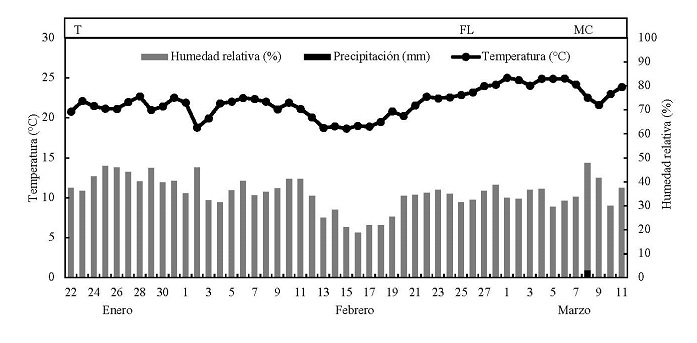Growth, yield, and profitability of zucchini (Cucurbita pepo L.) fertilized with chemical and biological sources
DOI:
https://doi.org/10.28940/terra.v40i0.1059Keywords:
seaweed, economic analysis, fertilization, production, dry matterAbstract
Zucchini is a vegetable of great agricultural and social relevance in Mexico, hence, the implementation of alternatives such as the use of products of biological origin, can contribute to the improvement and increase of profits in this crop. The objective of this study was to determine the effect of chemical and biological fertilization on the growth, yield, and profitability of the zucchini crop. The study was established under irrigation in Tlayacapan, Morelos, Mexico, where seedlings of Italian zucchini variety Adelita were transplanted. The treatments consisted of the application of seaweed extract [Ascophyllum nodosum (L.) Le Jolis] and Rhizophagus irregularis (Błaszk., Wubet, Renker & Buscot) C. Walker & A. Schüßler (2010) to the soil mixed with chemical fertilizers. A random complete block design with four repetitions was used. To evaluate crop growth and leaf area dry matter per plant was recorded, with which the growth rate of the crop, absolute growth rate, crop yield, weight, diameter, and length of the fruit were determined. In addition, an economic analysis was performed to determine the profitability of each treatment. Overall, it was observed that the application of 100% chemical fertilization promoted the largest leaf area, fresh plant weight, dry matter, absolute growth rate, crop growth rate, yield, and fruit weight in zucchini cultivation, which caused improved profitability. Fertilization with seaweed complemented chemical fertilization and generated a better response in the variables evaluated compared to R. irregularis.
Downloads
Publication Facts
Reviewer profiles N/A
Author statements
- Academic society
- Terra Latinoamericana
- Publisher
- Mexican Society of Soil Science, C.A.

















